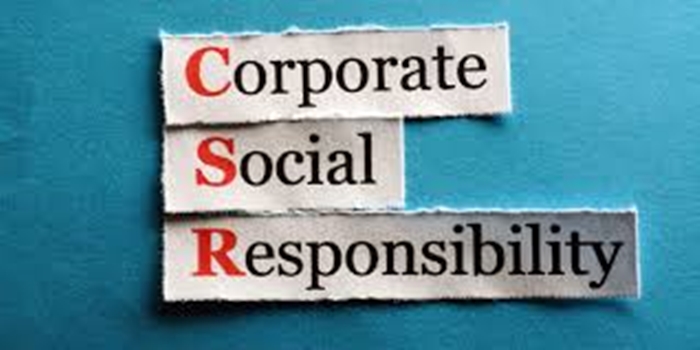In this article, we discussed the meaning of corporate social responsibility, the types, the examples, the benefits and functions.
Definition
Corporate social responsibility (CSR) is a business strategy that involves considering social, environmental, and ethical issues in business operations. It’s a voluntary way for businesses to take responsibility for their impact on society.
The Types of Corporate Social Responsibility
Environmental responsibility Reducing environmental impact and investing in renewable energy sources.
Philanthropic responsibility Donating to charities and non-profits, Creating charitable trusts, and Supporting community causes.
Ethical responsibility
Treating employees, customers, and suppliers fairly
Ensuring ethical sourcing of materials
Offering competitive pay and benefits
Promoting diversity and inclusion
Economic responsibility
Making financial decisions that improve the economic well-being of shareholders, employees, suppliers, customers, and society
Investing in education programs
Funding local charities
Examples of corporate social responsibility (CSR) include:
Environmental responsibility:
Reducing waste, investing in renewable energy, implementing sustainable manufacturing practices
Social responsibility:
Supporting education initiatives, promoting health awareness, providing access to clean water
Ethical responsibility:
Fair labor practices, upholding human rights, ethical sourcing
Philanthropic responsibility:
Donating to charities, sponsoring community events, employee volunteering programs
A clothing company using recycled materials in their products
A tech company offering employee volunteer days to support local causes
A food company partnering with a food bank to donate surplus food
A bank providing financial literacy workshops for low-income communities
A manufacturing company investing in energy-efficient machinery to reduce emissions
A company implementing diversity and inclusion initiatives in their hiring practices.
Benefits of corporate social responsibility
Increased employee satisfaction
How a company chooses to treat its employees plays a significant role in its overall success. If employees feel unappreciated and believe they are simply a means to an end for their employers to make money, it will greatly affect the standard of their work.
On the other hand, employees who feel that the work they do matters and that they are a valuable asset to their employers will naturally feel more motivated to do their best to help the brand succeed. Offering employees opportunities to volunteer in the community during regular office hours is a great opportunity for personal growth and development.
Increased customer loyalty
Any business seeking to obtain loyal customers must understand that customers are loyal to brands that share a set of corporate beliefs and values that align with their own. Research shows that 87% of Americans are more likely to buy a product from a company when they can align their values; over half of all consumers are willing to pay extra for a product if they’re buying from a company with a sturdy CSR strategy. By embracing corporate social responsibility, you can add increase your competitive advantage and enhance brand awareness exponentially.
Increased employee engagement
Extensive research proves that CSR and a strong sense of employee purpose actively contribute to increased employee engagement.
That’s important because when a company has engaged employees, they see a 17% increase in productivity, are 21% more profitable and can have 41% lower absenteeism. Innovation also increases in an engaged workplace.
Increased revenue
When you’re trying to win buy-in from leadership for your CSR program, it often falls to financials. Stakeholders want to know if this project will see a positive ROI – and research shows it will. CSR and sustainable initiatives positively affect businesses’ bottom-lines.
Press opportunities
Impactful CSR can get excellent press. If your organization is ever struggling to gain online popularity and press interest, your CSR initiative could be your route to market. Creating a CSR program that gets you noticed will see a fantastic boost in your brand awareness and overall online brand affinity.
Conclusion
Corporate Social Responsibility (CSR) refers to a company’s commitment to operate in a way that benefits society and the environment beyond just profit-making, by considering the social and environmental impacts of their business practices, often through initiatives like ethical labor practices, community engagement, and sustainability efforts, essentially acting as a responsible “corporate citizen.


